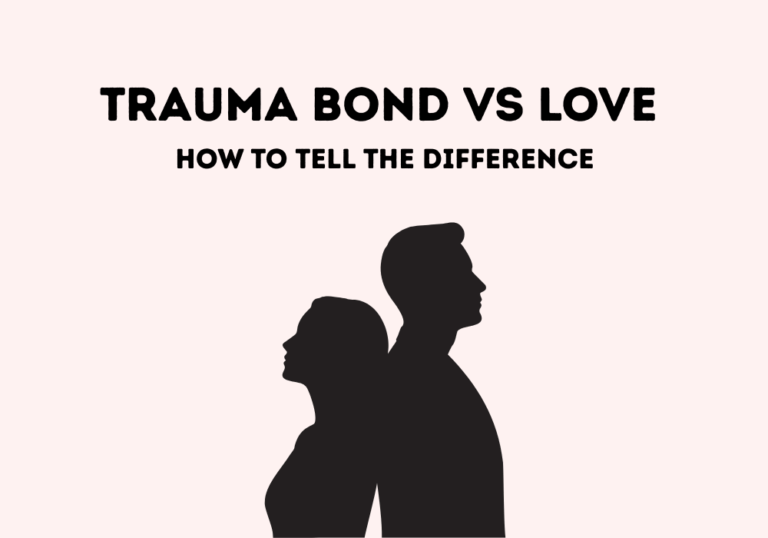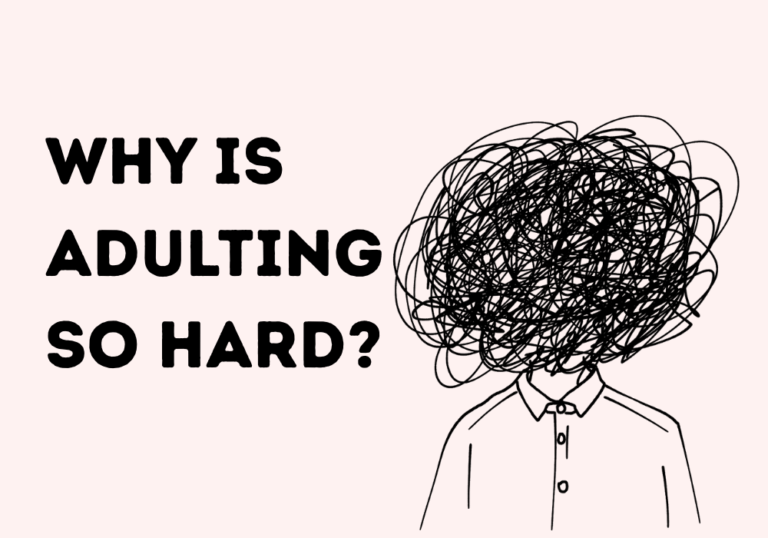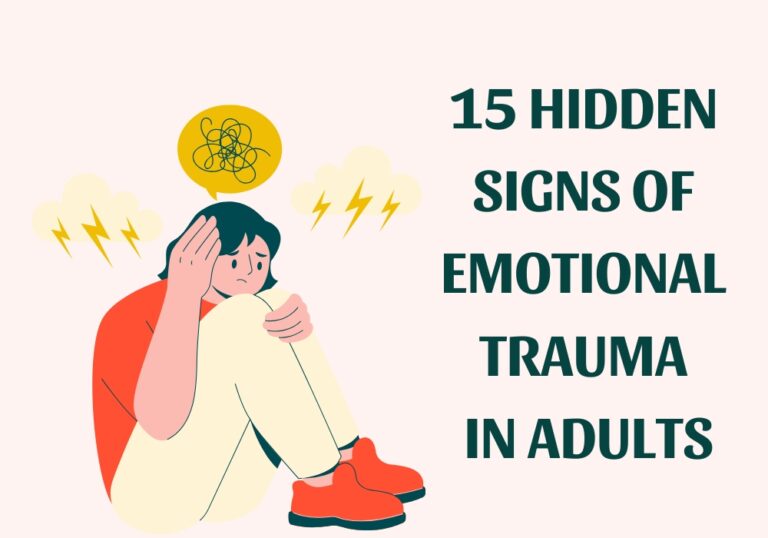Have you ever felt that heavy, sinking feeling when things don’t go as planned? Or found yourself doubting everything—your abilities, your worth—and wondered, “Why do I feel like a failure?” If you have, you’re not alone. At some point, everyone struggles with feeling like they’ve fallen short. It doesn’t matter who you are or where you’re from—it’s a human experience.
Sometimes life doesn’t meet our expectations, and thinking negatively is easy. But just because you feel like a failure doesn’t mean you are one. These feelings can signal that you’re ready to grow and reflect. Whether it’s in your career, relationships, or personal goals, when things don’t go as planned, it’s natural to feel inadequate. That voice in your mind whispering that you’re not good enough? It’s something we all deal with.
But why do we feel this way? And how can we overcome it? In this article, we’ll break down why these emotions arise, how they impact us, and share practical tips to help you overcome self-doubt and reclaim your confidence.
Why do I feel like a failure?
Feeling like a failure often comes from not reaching your goals, facing setbacks, or receiving criticism, which can lower your confidence and make you feel defeated. These emotions are shaped by both your own expectations and outside influences.
Social media can also make it worse by making you compare yourself to others and feel like you’re not good enough. But it’s important to remember these feelings are only temporary and don’t define who you really are.
20 Common Reasons You Might Feel Like a Failure:
There are many reasons why you might feel like you’re failing in life, and these can differ for each person. Some common reasons include:
1-Unrealistic Expectations:
Feeling like a failure often happens because we set expectations that are too high. Remember, no one is perfect, and it’s okay to make mistakes or not reach your goals every now and then. Instead of being hard on yourself for not meeting these unrealistic standards, focus on setting goals that are more realistic and easier to achieve.
2- Fear of Failure and Taking Risks:
Fear of failure can make us afraid to try new things or take risks, which can hold us back from growing and learning. When we put so much effort into avoiding mistakes, any setback can feel much worse than it really is. Instead of letting this fear control you, try to see failure as a chance to learn and grow. Every mistake is an opportunity to gain experience and insight, so embrace them as part of the journey.
Related: 10 Tips to overcome fear and become unstoppable
3-Social Comparison:
In today’s social media world, it’s easy to think, “I feel like a failure” when comparing your life to others. Whether it’s a friend, colleague, or celebrity, this constant comparison can make you feel inadequate and lower your self-worth. But it’s important to remember that what you see online is not reality, and everyone’s journey is different. Comparing yourself to others is like comparing apples to oranges—it doesn’t make sense. Instead, focus on your own personal growth, and you’ll feel better about your own progress and path.
4-Imposter Syndrome:
Imposter syndrome is a psychological phenomenon where individuals doubt their accomplishments and fear being exposed as frauds, even when they are successful. It’s like having a constant voice in your head saying, “You’re not good enough,” which clouds your perception and makes everything seem worse than it really is. Despite receiving external validation, those with imposter syndrome often believe they’re not as competent as others think and worry about being “found out.” This self-doubt can lead to feeling undeserving of success and create a sense of failure, even when achieving great things.
To combat this mindset, it’s helpful to keep a journal of your accomplishments, acknowledge your successes, and talk to a mentor or trusted colleague for support.
Related: Imposter Syndrome:Symptoms & How To Overcome It ’10 Tips’
5-Burnout:
Career setbacks are a common reason many people say, “I feel like a failure.” Whether it’s missing out on a promotion, feeling stuck in a job you don’t enjoy, or not reaching your professional goals, these challenges can lead to self-doubt. Society often ties our self-worth to career success, so even small setbacks can feel much bigger than they are. This pressure can make it hard to separate your personal value from your work achievements, making career struggles feel even more discouraging.
Related: How to Avoid Burnout? 12 Ways to Get From Burnout to Balance
6-No Clear Goals:
Feeling like a failure can often stem from not having clear goals or a sense of direction. Without something specific to work toward, it’s easy to feel lost or unmotivated. Setting achievable, well-defined goals can give you a stronger sense of purpose and help you stay focused. Take some time to reflect on what truly matters to you and what you want to accomplish in the long run. Once you have a clearer idea, create a step-by-step plan to reach those goals. This can give you both the motivation and confidence to keep moving forward.
7-Perfectionism:
Feeling like a failure often happens because we expect way too much from ourselves. When we set impossible goals, it’s easy to feel disappointed, even when we’re actually making progress. Perfectionism also makes us compare our tough moments to the best parts of other people’s lives—especially on social media, where we only see their highlights. No wonder we catch ourselves thinking, “I feel like a failure.” But remember, life is a marathon, not a sprint! You won’t hit your goals overnight, but every step gets you closer. It’s great to aim high, but expecting perfection all the time can really wear you down. It’s okay to make mistakes and be imperfect—that’s how we grow!
Related: How To Overcome Perfectionism in 10 Tips
8-Relationships:
When friendships, family bonds, or romantic relationships don’t work out the way we hoped, it can be really tough to handle. We often find ourselves wondering what went wrong, blaming ourselves, and questioning why we couldn’t make things work. This can take a toll on our confidence and leave us feeling pretty down. It’s natural to feel hurt, but it’s important to remember that not every relationship is meant to last, and it doesn’t define your worth.
Related: 15 Clear Signs You Are In a Relationship with a Narcissist
Related: Understanding Complicated Relationships: 15 Signs & 8 Causes
9-Negative Self-Talk:
The way you speak to yourself can really affect how you feel about yourself. If you’re constantly pointing out your flaws, it’s no surprise you end up thinking, “I feel like a failure.” This kind of thinking can weigh you down over time. Instead, try to be more gentle with yourself and swap out those negative thoughts for positive ones. It’s a small change that can make a big difference in boosting your self-confidence.
Related: The Toxic Effects of Negative Self-Talk ’11 Effects’
10-Lack of Skills or Knowledge:
Feeling unprepared for a challenge can easily make you feel like a failure. When you don’t have the right skills or knowledge, self-doubt often starts to creep in, making you question your abilities. This can be discouraging, but it’s important to remember that skills can be learned and knowledge can be gained. With time and effort, you can build the confidence to overcome those challenges.
11-Lack of Progress:
When progress feels slow, it’s easy to think you’re not moving forward at all. Even though small steps are still progress, the lack of big results can make you feel stuck and frustrated, often leading to thoughts like, “I feel like a failure.” It’s important to remember that any progress, no matter how small, is still moving in the right direction.
12-Unresolved Trauma:
When emotional trauma isn’t dealt with, it can leave you feeling stuck. Unresolved issues from the past often make you feel like a failure and hold you back. These feelings can chip away at your confidence and make it hard to move forward. If left unaddressed, the trauma continues to affect how you think and feel, making it tough to grow and heal.
Related: 23 Signs of Repressed Childhood Trauma in Adults
Related: 15 Hidden Signs of Emotional Trauma in Adults & How to Heal
13-Past Mistakes:
Focusing too much on past mistakes can keep you from moving forward. When you’re always thinking about past failures, it becomes tough to concentrate on future successes and opportunities. Letting go of those mistakes is key to making progress.
14-Self-Sabotage:
Sometimes, without even realizing it, we sabotage our own efforts, which keeps us stuck in a cycle of failure. This usually happens because of fear or not believing in ourselves. You might avoid chances, procrastinate, or give up too quickly, making it hard to reach your goals. The first step to breaking this cycle is recognizing the pattern, building your confidence, and trusting in your ability to succeed.
Related: Why Do We Self Sabotage? 9 Ways to Overcome It
15-Overcommitting:
When you take on too many responsibilities, it can lead to burnout and unfinished work. Overcommitting makes it hard to focus and succeed, which can leave you feeling overwhelmed and like a failure. To avoid this, it’s important to set limits and prioritize your tasks so you can find balance and feel more accomplished.
16-Career setbacks:
Career setbacks are a common reason many people say, “I feel like a failure.” Whether it’s missing out on a promotion, feeling stuck in a job you don’t enjoy, or not reaching your professional goals, these challenges can lead to self-doubt. Society often ties our self-worth to career success, so even small setbacks can feel much bigger than they are. This pressure can make it hard to separate your personal value from your work achievements, making career struggles feel even more discouraging.
17-Financial Struggles:
Money problems can make anyone feel like a failure, especially if you’re trying to achieve financial stability. Growing debt, bad financial choices, or insufficient resources can make you feel even worse. It’s easy to feel overwhelmed but remember that financial setbacks don’t define who you are or your abilities.
Related: Grab your Monthly Budget Planner today and easily manage your money ->Download now and watch your savings grow!”
18-Lack of Self-Worth:
Feeling like a failure often comes from not recognizing your own self-worth. It’s important to remember that your achievements or successes don’t determine your value as a person. You are worthy of love, respect, and happiness just by being yourself. When you think, “I feel like a failure,” try to shift your focus. To overcome these feelings, practice self-love and acceptance, and treat yourself with the kindness and compassion you truly deserve.
19-External Validation and Seeking Praise:
Relying too much on others for approval can be risky. If your sense of worth depends on getting recognition from people, you’re more likely to feel like a failure when you don’t get it. If you often seek praise from others, not receiving it can lead to self-doubt and negative feelings. It’s important to remember that your own opinion of yourself matters most.
Learning to value yourself without needing others’ approval can help boost your confidence and resilience.
“Stop looking for praise outside. What matters is how you feel inside.”
20-Lack of Support:
Feeling like a failure can often happen when you don’t have enough support from friends, family, or coworkers. It’s important to be around people who believe in you and cheer you on as you pursue your goals. Having a strong support system can really boost your confidence and help you bounce back from setbacks. When you know that others are in your corner, it becomes much easier to keep pushing forward.
Conclusion:
So, do you feel like a failure? Take a moment to think about what might be causing these feelings and how you can begin to shift your mindset. Consider ways to build a more positive self-image. Remember, everyone faces setbacks and challenges, but how we respond to these obstacles is what really defines our success.
Don’t let feelings of failure keep you from reaching your full potential!









Beautiful article. wish u a good luck
perfect